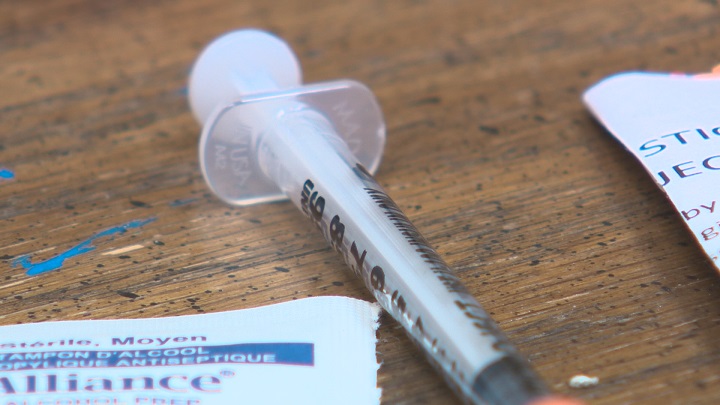Researchers have long considered the possibility that drugs like prescription heroin and hydromorphone could be used to treat opioid addiction.

Now, the BC Centre on Substance Abuse Use (BCCSU) has issued guidelines for how to prescribe them in the province.
The BCCSU said the treatments could help people who “have not benefited from other forms of treatment.”
Cheyenne Johnson with the BCCSU said the purpose of the guidelines is to provide a foundation so that access to such treatments can be expanded across the province.

Get breaking National news
WATCH: Full coverage of the overdose crisis
The guidelines contain information on patient eligibility, dosing and anything you might need to offer these treatments, Johnson said.
Each community should be involved in what the treatment looks like, with input from people such as care providers, drug users and their loved ones, as well as recovery experts.
“In the midst of an epidemic of opioid overdoses, we need to give people who are struggling with addiction as many treatment options as we can so we can reduce the tragic number of deaths in communities across our province,” Judy Darcy, minister of mental health and addictions, said in a news release.
The guidelines were created by a team assembled by the BCCSU, which included regional and provincial health authorities, drug users and the B.C. Ministry of Health.
Drugs killed almost 900 people from January to July of this yaer, according to the latest numbers from the BC Coroners Service.
- Snowmobilers fall through ice, bodies recovered days later after lake refreezes: RCMP
- Boundary Bay Airshow cancelled for 2026 after nearly two decades
- Hearing on police-involved death of Myles Gray resuming after obscenity led to delay
- ‘Makes me feel angry’: Lapu Lapu victim questions where donation money went

















Comments
Want to discuss? Please read our Commenting Policy first.